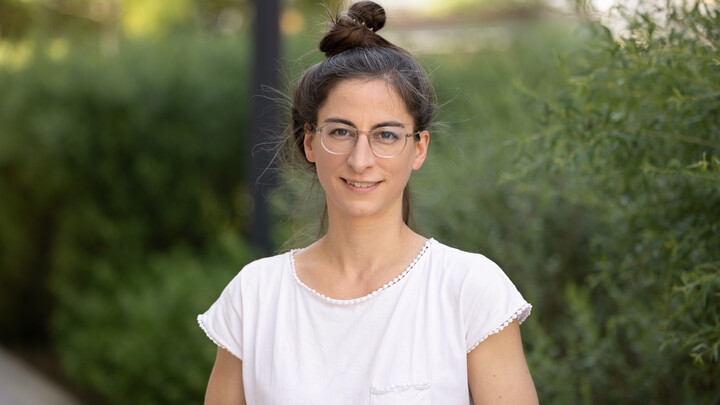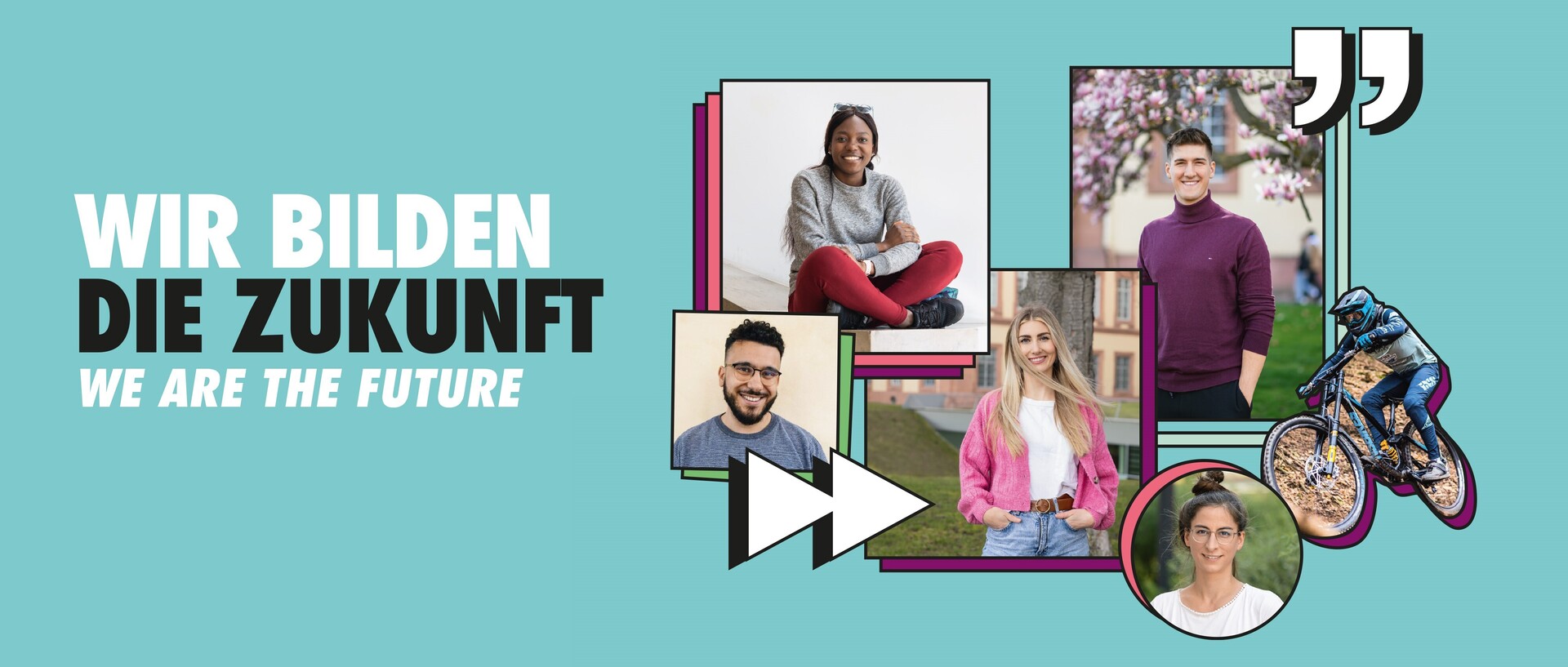In Profile: Professor Teresa Naab
Communication scientist Teresa Naab is deeply passionate about her subject. She has been teaching and researching at Mannheim for just under a year. Naab believes that in a world saturated by digital media, it is important to know how people use media and what it does to them—both at an individual and a societal level.

The expression “something with media” has become a standing joke, used to ironically sum up a whole generation’s career aspirations. It is even the title of a German TV series. But back in 2000, it was simply a turn of phrase, an idea. At that time, Teresa Naab, who is now Professor of Digital Communication at Mannheim, was still at high school in her hometown of Eichstätt, Bavaria. Her future plans were still up in the air. She had lots of different interests: artistic, creative, practical. After doing an internship in the field of corporate comms and event management, the direction she wanted to take came into clearer focus. She began a degree in media management at the Hanover College of Music and Theater (now Hanover University of Music, Drama and Media). “During my degree, my focus soon shifted in a more academic direction, toward traditional communication studies. Event management fell by the wayside pretty quickly!” recalled Naab. During our interview, she often laughed and was buzzing with energy. She spoke passionately about her research and described how much personal interest and enjoyment she takes in the topics she works on. For instance, as she explained with another hearty laugh, the main reason she did her doctorate on “customs and rituals of watching television” was because she was an avid TV watcher herself.
Driven by this passion, after her doctorate she completed a habilitation and took up academic posts at the University of Georgia in the States and at the universities of Augsburg, Munich, and Mainz in Germany. Now 42, she has been Chair of Media and Communication Studies at Mannheim for just under a year. These days, her research focuses mainly on the use and impact of digital communication media. How did she get from her doctoral thesis to that topic? It is not that big of a departure, Naab explained: “The media landscape has simply changed! We used to watch TV and passively absorb its content. Now we do that on our phones, computers, and smart TVs.” What interests her are the customs and rituals that used to be closely bound up with watching television: People would watch certain TV shows so they could talk about them with their friends the next day, they would arrange to meet up on Wednesday evenings to watch a show together on the couch, they would finish up their day by watching the 8 o’clock news. TV used to satisfy a need to structure our time and bond with other people. Has digital media cured us of that need? “For a long time I believed that analog, linear television was here to stay because people need something to structure their time. Now, 15 years later, I’m not so sure.”
It is these questions that motivate her work today. “Much of our day-to-day lives is saturated with digital media. So it’s important to know how people use media and what it does to them. Both what it does to them personally and what it means for our society.” Naab is especially interested in the role of digital communication in democratic processes, in how people are able to competently navigate the digital world, and in innovative methods that can be used to study digital communication.
Methodologically, her current research can be divided into two areas. Firstly, quantitative content analysis, which she uses to analyze comment threads. “Alongside the topic of my doctoral thesis, I’ve always been interested in issues around freedom of opinion. It’s a fundamental value of our democracy and enshrined in the constitution. But above and beyond that legal guarantee, it’s also important what attitudes ordinary people have toward it. That’s an especially interesting question when it comes to social or digital media, because all of a sudden it seems like anyone and everyone can write and publish whatever they like. That prompts the question: Where do we draw the line of what we consider acceptable? And what can we do when people cross that line? Thinking about that question brought me to the topic of online hate speech.” The term Hasskommentare, literally “hate comments” (Naab herself prefers the term “uncivil comments”) is popularly used in Germany to describe online comments that contain insults, abuse, or unconstitutional/
The second method she is using a lot at the moment is surveys. What effect does using digital media have on people? What do the many heated online discussions, the flood of information, the anonymity afforded by the internet, the public display of personal information do to us? “We also use experiments. For instance, we simulate different online environments and ask participants to produce their own content, comments, self-presentations. We then look at how different online environments affect their attitudes toward certain topics, their willingness to intervene against hate speech, the way they see themselves. The latter topic—what’s referred to as ‘self-effects’ on social media—is something I’m especially interested in at the moment,” explained Naab. “We’ve observed that people who reveal something about themselves can also change their self-perceptions by doing so. Someone who publicly posts that they have certain attitudes or are behaving in a certain way can reinforce those attitudes or behaviors in themselves.”
Courses such as communication studies and journalism are in great demand. In the last ten years, the number of students has doubled, and take-up for Naab’s seminars is always high. “I always try to make clear to my students that just because we ourselves use media a lot, doesn’t mean we understand how other people with different life circumstances, opinions, and interests use media and what effect it has on them. So we need to study it, in order to understand our society in all its diversity and find generalizable patterns.”
Can she still enjoy casually scrolling through social media on her phone in her free time? Naab reluctantly admitted that she always reads comment threads with a researcher’s eye, looking for things relevant to her work. The line between her work and her personal media consumption has become blurred. “But I do really enjoy my work! I can’t stop seeing things through an academic lens, but it doesn’t bother me.” She has no problem simply putting her phone down, however. In her free time, Naab likes to keep both her hands free for hobbies like gardening.
Text: Jule Leger/
